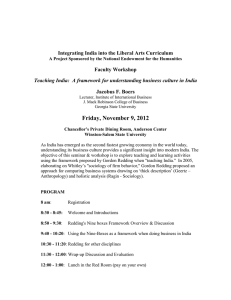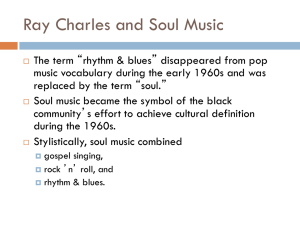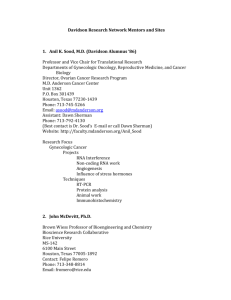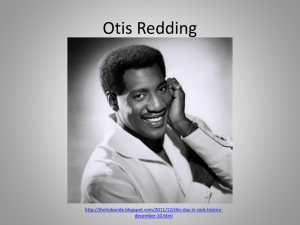Celebrating the Memory of Otis Redding on his Special Day
advertisement
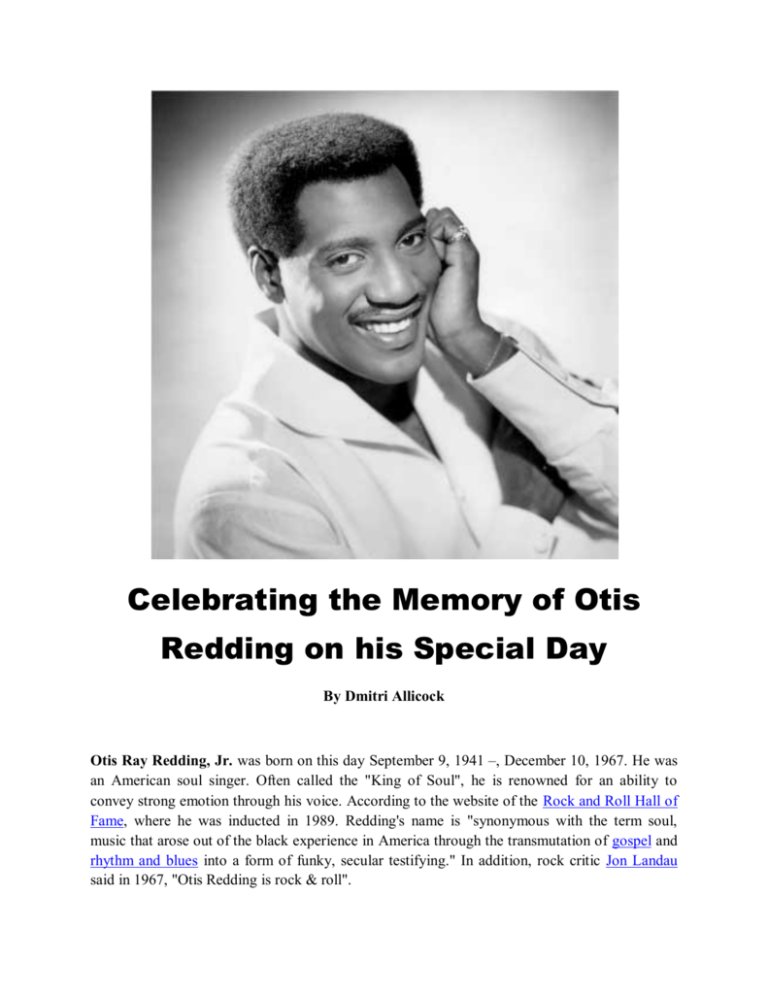
Celebrating the Memory of Otis Redding on his Special Day By Dmitri Allicock Otis Ray Redding, Jr. was born on this day September 9, 1941 –, December 10, 1967. He was an American soul singer. Often called the "King of Soul", he is renowned for an ability to convey strong emotion through his voice. According to the website of the Rock and Roll Hall of Fame, where he was inducted in 1989. Redding's name is "synonymous with the term soul, music that arose out of the black experience in America through the transmutation of gospel and rhythm and blues into a form of funky, secular testifying." In addition, rock critic Jon Landau said in 1967, "Otis Redding is rock & roll". Redding died in a plane crash at the age of 26, one month before his biggest hit, "(Sittin' On) The Dock of the Bay", was released. When he left his final recording session in Memphis, Otis Redding intended to return soon to the song he'd been working on—he still had to replace a whistled verse thrown in as a placeholder with additional lyrics that he'd yet to write. In the meantime, however, there was a television appearance to make in Cleveland, followed by a concert in Madison, Wisconsin. On its final approach to Madison on this day in 1967, however, the private plane carrying soul-music legend Otis Redding would crash into the frigid waters of a small lake three miles short of the runway, killing seven of the eight men aboard, including Redding. "Sittin' On The Dock Of The Bay" would be released in its "unfinished" form several weeks later, with Redding's whistled verse a seemingly indispensable part of the now-classic record. It would soon become history's first posthumous #1 hit and the biggest pop hit of Redding's career. In the six months leading up to his death, Otis Redding had gone from one great success to another. In June, Aretha Franklin had taken a cover version of his song "Respect" all the way to #1 on the pop charts. Later that same month, the adulation of the young audience of rock fans at the Monterey International Pop Festival had transformed him into an icon of the blossoming counterculture thanks to his blistering, now-legendary live performance there. But if Otis Redding was only beginning to gain momentum within the largely white mainstream in 1967, he was already a giant in the world of soul music. During a period in the mid-1960s when the Beatles and Motown ruled the pop charts, Otis Redding established himself as arguably the most exciting singer on the roster of Memphis-based Stax/Volt Records—itself arguably the most exciting soul and R&B label of the era. Singles like "I've Been Loving You Too Long" and "I Can't Turn You Loose" (both 1965) were among Redding's numerous top-20 hits on the R&B charts in that era, as were his soulful renditions of "(I Can't Get No) Satisfaction" (1966) and "Try A Little Tenderness" (1967). It was the latter song, rendered in the impassioned style that was by then familiar to soul audiences, that brought down the house at Monterey just a few months before his death, 46 years ago.
